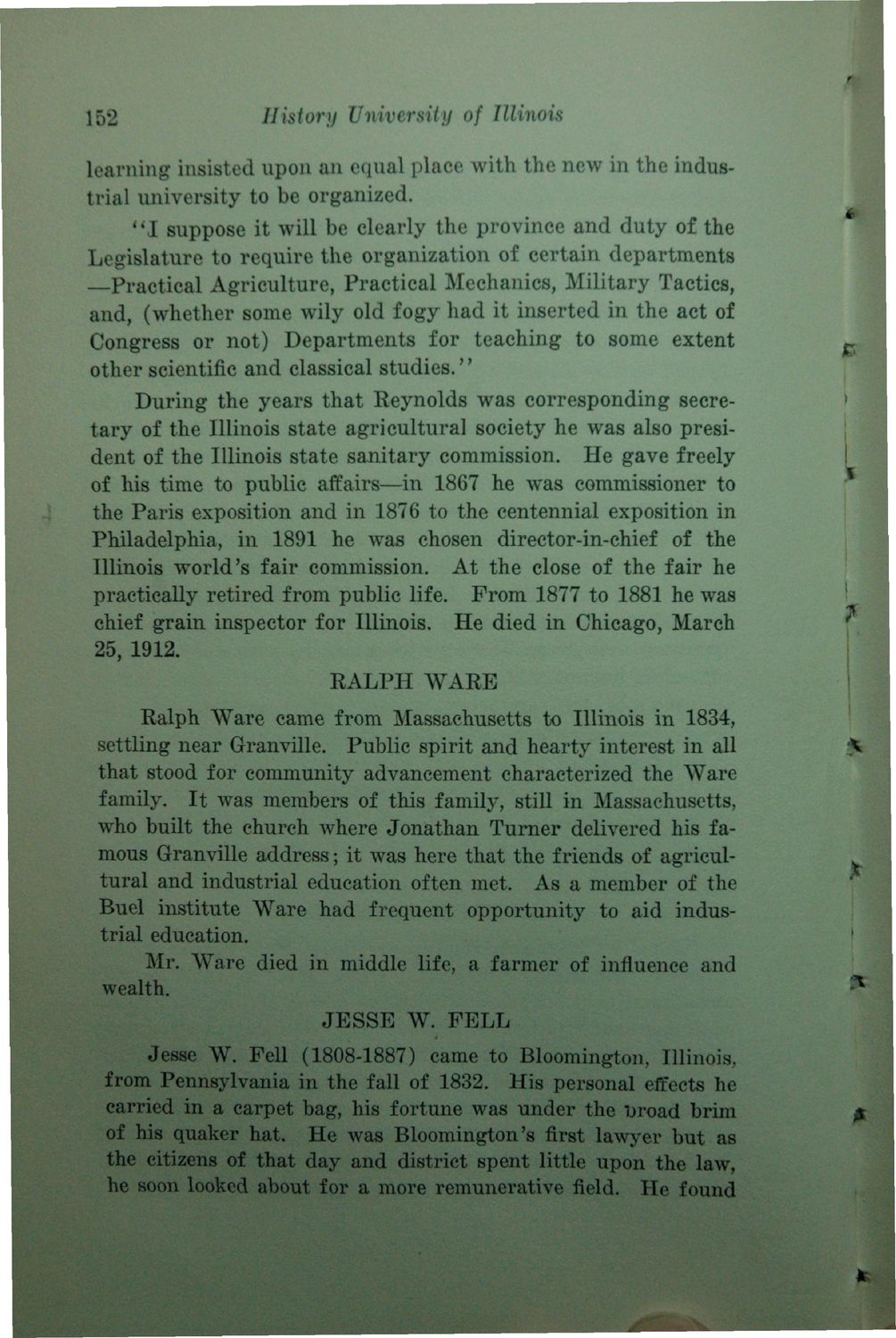| |
| |
Caption: Book - History of the University (Powell)
This is a reduced-resolution page image for fast online browsing.

EXTRACTED TEXT FROM PAGE:
152 History University of Illinois learning insisted upon an equal place with the new in the industrial university to be organized. " I suppose it will be clearly the province and duty of the Legislature to require the organization of certain departments —Practical Agriculture, Practical Mechanics, Military Tactics, and, (whether some wily old fogy had it inserted in the act of Congress or not) Departments for teaching to some extent other scientific and classical studies." During the years that Reynolds was corresponding secretary of the Illinois state agricultural society he was also president of the Illinois state sanitary commission. He gave freely of his time to public affairs—in 1867 he was commissioner to the Paris exposition and in 1876 to the centennial exposition in Philadelphia, in 1891 he was chosen director-in-chief of the Illinois world's fair commission. At the close of the fair he practically retired from public life. From 1877 to 1881 he was chief grain inspector for Illinois. He died in Chicago, March 25, 1912. RALPH WARE Ralph Ware came from Massachusetts to Illinois in 1834, settling near Granville. Public spirit and hearty interest in all that stood for community advancement characterized the Ware family. It was members of this family, still in Massachusetts, who built the church where Jonathan Turner delivered his famous Granville address; it was here that the friends of agricultural and industrial education often met. As a member of the Buel institute Ware had frequent opportunity to aid industrial education. Mr. Ware died in middle life, a farmer of influence and wealth. JESSE W. FELL Jesse W. Fell (1808-1887) came to Bloomington, Illinois, from Pennsylvania in the fall of 1832. His personal effects he carried in a carpet bag, his fortune was under the Droad brim of his quaker hat. He was Bloomington -s first lawyer but as the citizens of that day and district spent little upon the law, he soon looked about for a more remunerative field. He found ^ \ . * J
| |